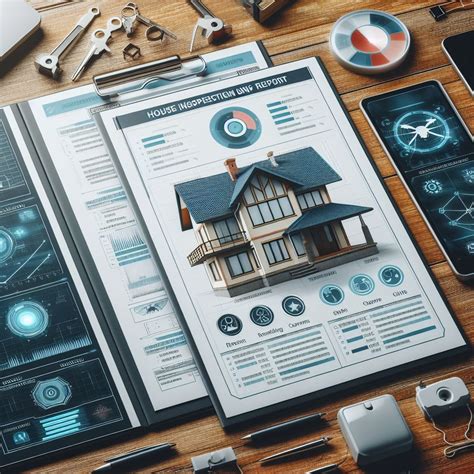Home inspections play a crucial role in the home buying and selling process. They help identify potential issues with a property, providing buyers and sellers with valuable insights that can inform their decisions. However, traditional home inspection methods can be prone to errors, which is where home inspector tech comes in. In this article, we'll explore five ways home inspector tech improves accuracy, making the inspection process more reliable and efficient.
What is Home Inspector Tech?
Home inspector tech refers to the use of advanced technologies, such as drones, 3D scanning, and thermal imaging, to enhance the home inspection process. These technologies provide inspectors with more accurate and detailed information about a property's condition, allowing them to identify potential issues more effectively.

1. Enhanced Visual Inspection
Traditional home inspections rely heavily on visual observations, which can be limited by the inspector's line of sight. Home inspector tech, such as drones and 3D scanning, provides inspectors with a more comprehensive view of a property's exterior and interior. Drones can capture high-resolution images of a property's roof, gutters, and other hard-to-reach areas, while 3D scanning creates detailed models of a property's layout and structure.

2. Thermal Imaging
Thermal imaging is a non-invasive technology that uses infrared radiation to detect temperature differences within a property. This can help inspectors identify potential issues, such as energy efficiency problems, moisture damage, and pest infestations. Thermal imaging can also detect temperature anomalies that may indicate hidden defects, such as a faulty electrical system or a leaky pipe.

3. Improved Data Collection and Analysis
Home inspector tech allows inspectors to collect and analyze data more efficiently. Mobile apps and software programs can streamline the inspection process, enabling inspectors to record observations, take photos, and create reports more quickly and accurately. This data can then be analyzed to identify patterns and trends, helping inspectors to provide more informed recommendations.

4. Increased Efficiency
Home inspector tech can significantly reduce the time and effort required to complete a home inspection. Automated reporting tools and mobile apps can help inspectors to generate reports more quickly, while drones and 3D scanning can reduce the need for manual measurements and observations. This increased efficiency enables inspectors to complete more inspections in less time, improving their productivity and reducing costs.

5. Enhanced Customer Experience
Home inspector tech provides inspectors with the tools they need to deliver a more comprehensive and accurate inspection report. This, in turn, enhances the customer experience, providing buyers and sellers with more confidence in the inspection process. Inspectors can also use home inspector tech to create interactive reports and presentations, making it easier for customers to understand the inspection findings.

Gallery of Home Inspector Tech






Frequently Asked Questions
What is home inspector tech?
+Home inspector tech refers to the use of advanced technologies, such as drones, 3D scanning, and thermal imaging, to enhance the home inspection process.
How does home inspector tech improve accuracy?
+Home inspector tech improves accuracy by providing inspectors with more detailed and comprehensive information about a property's condition. This includes enhanced visual inspections, thermal imaging, and data collection and analysis.
What are the benefits of home inspector tech for customers?
+The benefits of home inspector tech for customers include a more comprehensive and accurate inspection report, increased efficiency, and an enhanced customer experience.
We hope this article has provided you with a comprehensive understanding of the ways in which home inspector tech improves accuracy. By leveraging advanced technologies, inspectors can deliver more comprehensive and accurate inspection reports, enhancing the customer experience and providing buyers and sellers with more confidence in the inspection process.
